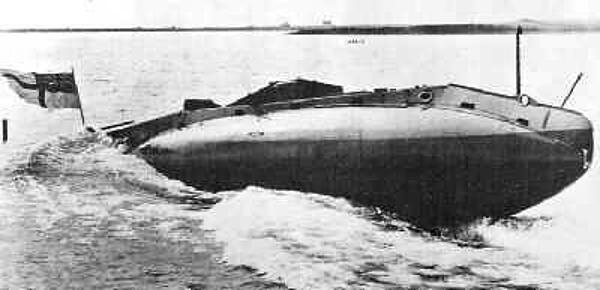Holland Class Submarine
The Holland class submarine was the first type to be developed for the British Royal Navy. The Holland was designed by American engineer John Philip Holland, who then sent it to be built by Vickers in Barrow-in-Furness.
The first submarine to be commissioned and used by the Royal Navy was HMS Holland 1, which was one of a batch of six produced for the naval fleet. Holland 1 was first launched on 2 October 1901 and dived for the first time in March 1902. Later that year, she was set on her first mission as part of the First Submarine Flotilla, commanded by Captain Reginald Bacon.
At the time of the Holland’s development, much of the Admiralty was still concerned about the use of this new sea weapon, and as such there was little budget dedicated to adding Hollands to the naval fleet. As such, the submarines initially struggled with many issues including reliability, and they saw very little action during their time with the Royal Navy.
None of the Holland class submarines were used during World War One, but it did provide inspiration for many of the submarines that made it to the war, including the B-class and the C-class subs.

See the table below for more information on the characteristics of the Holland class:
Holland Class submarines - statistics:
| Number completed before 1919 | 5 |
| Number completed after 1919 | 0 |
| Lost in action | 0 |
| Lost accidentally | 1 |
| Prototype date | 1902 |
| Surface tonnage | 104 |
| Submerged tonnage | 122 |
| length | 63 feet 6 inches |
| Engine | Petrol |
| Horsepower | 160 |
| Screws | 1 |
| Surface speed | 8 knots |
| Submerged speed | 5 knots |
| Torpedo tubes | 14 inches |
| Number of torpedoes tubes | 1 |
| Guns | 0 |
| Crew | 7 |
MLA Citation/Reference
"Holland Class Submarine". HistoryLearning.com. 2026. Web.
